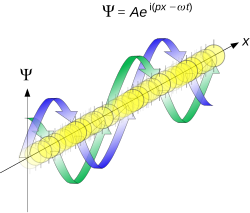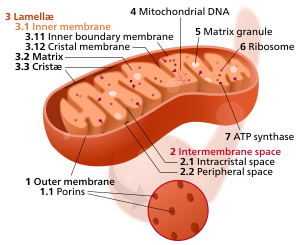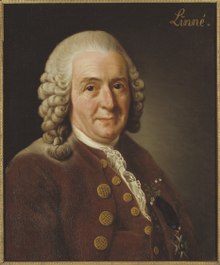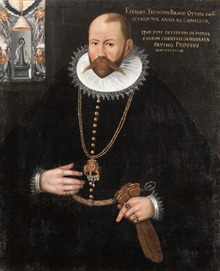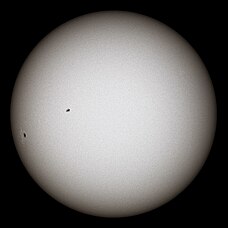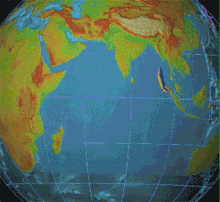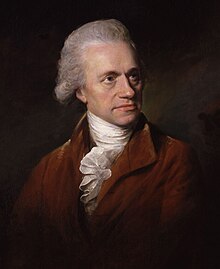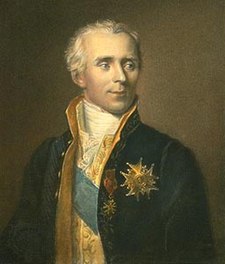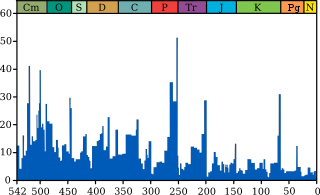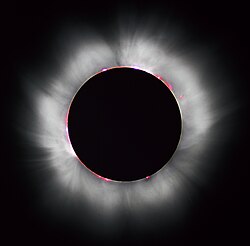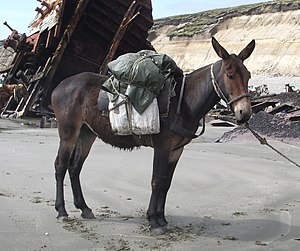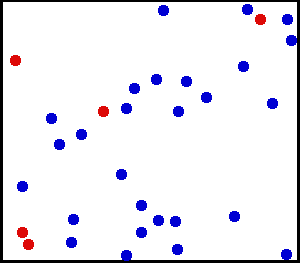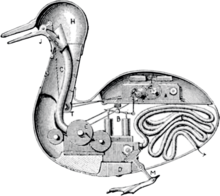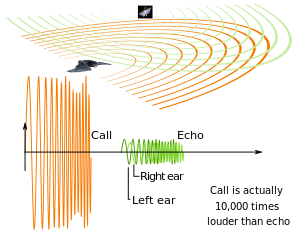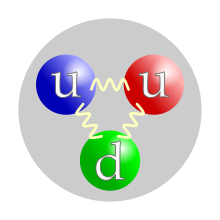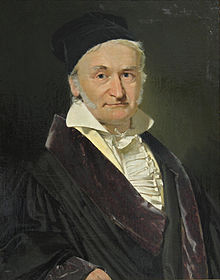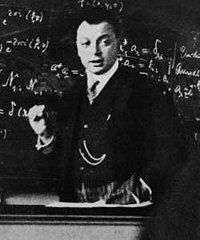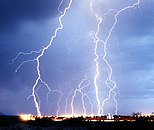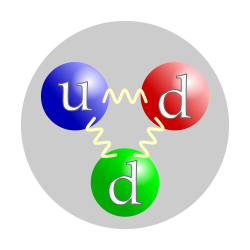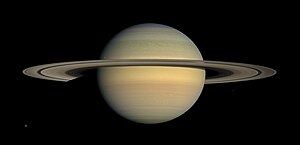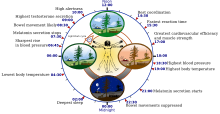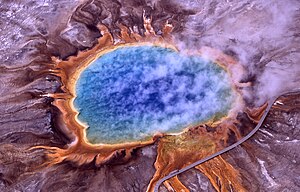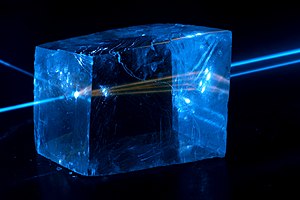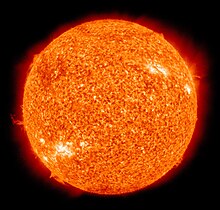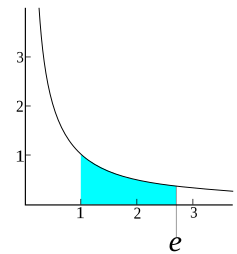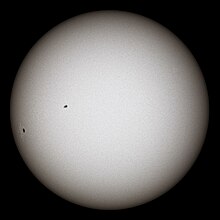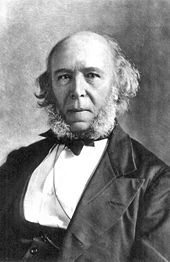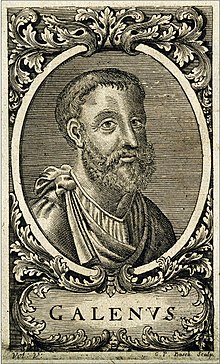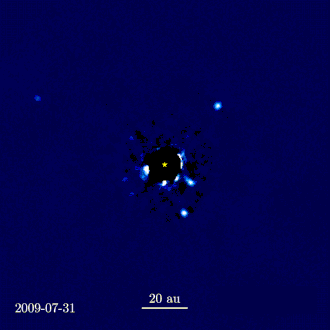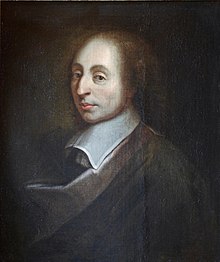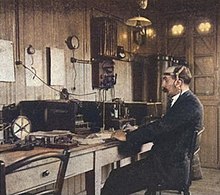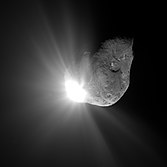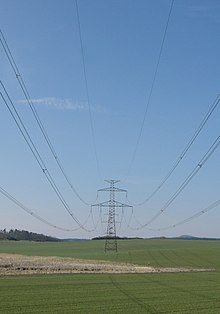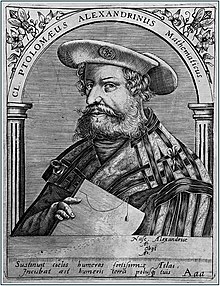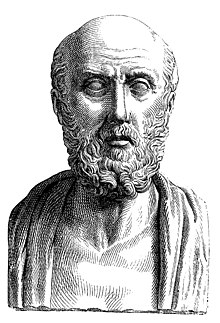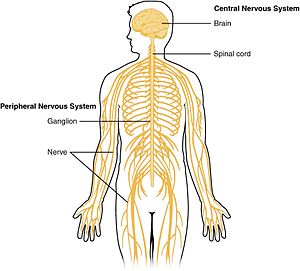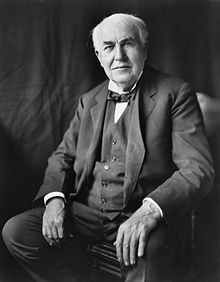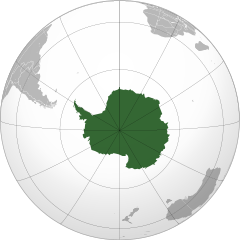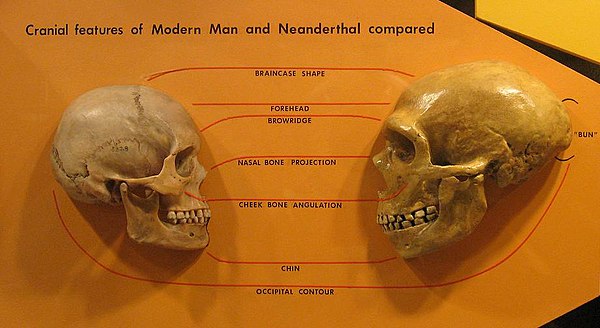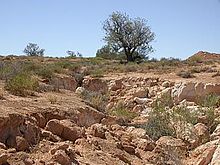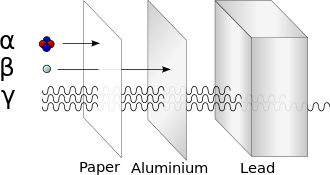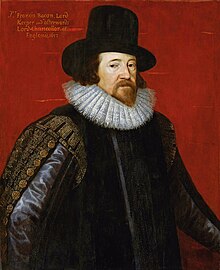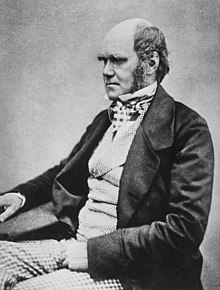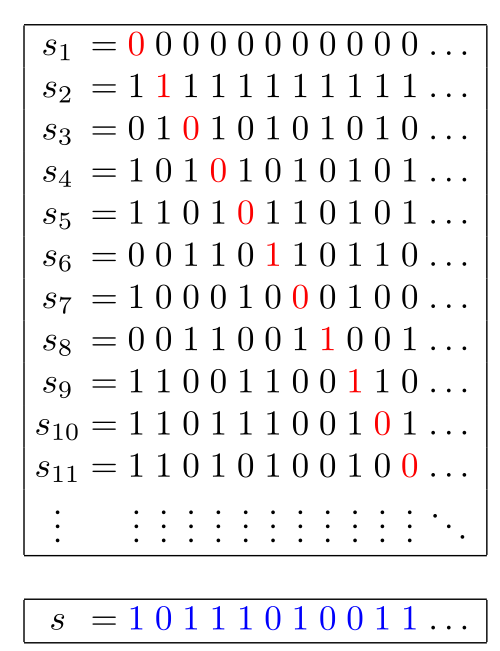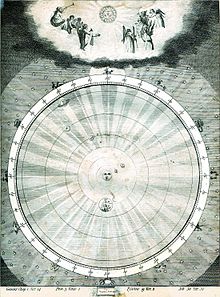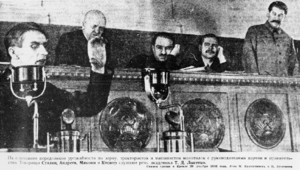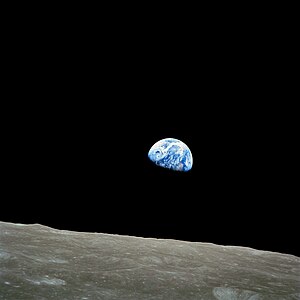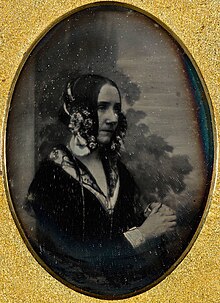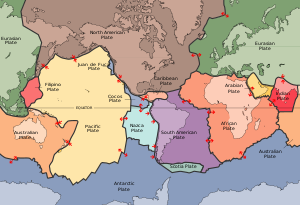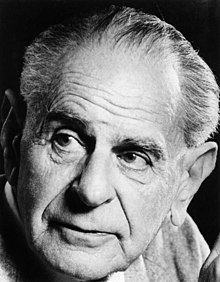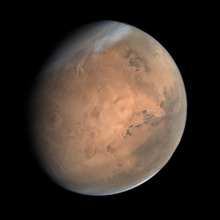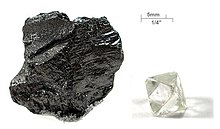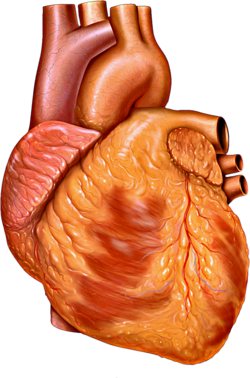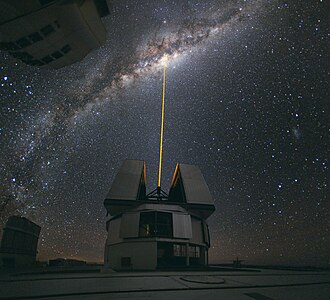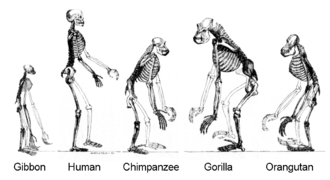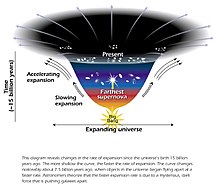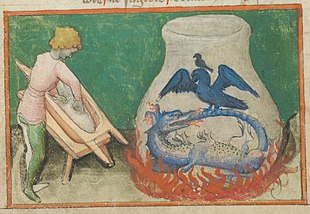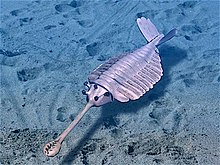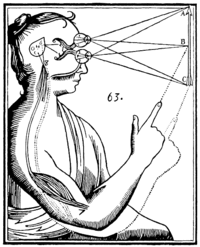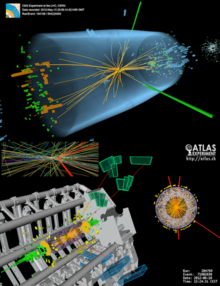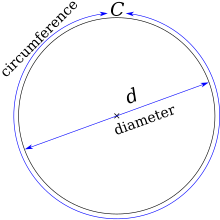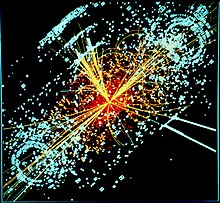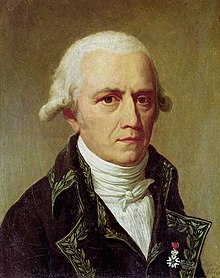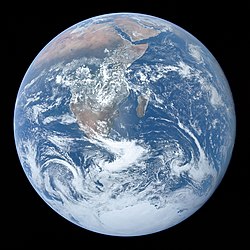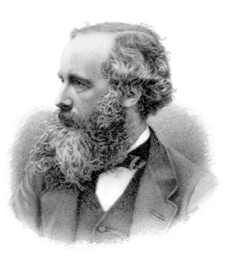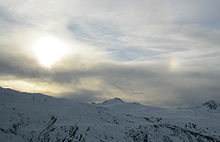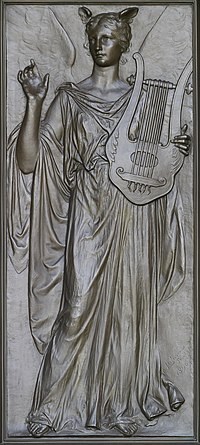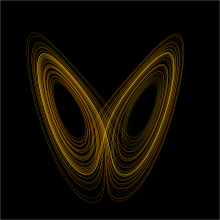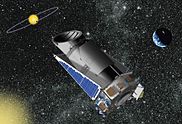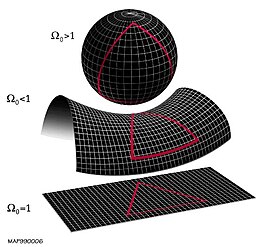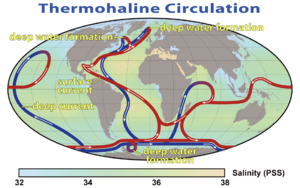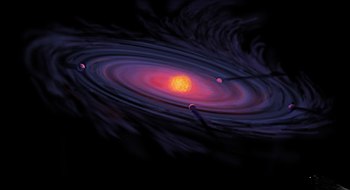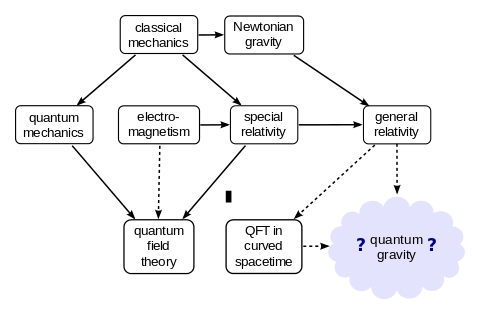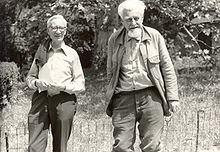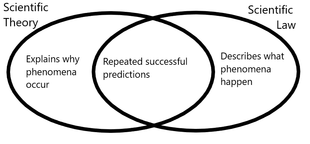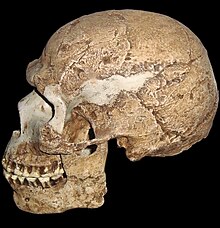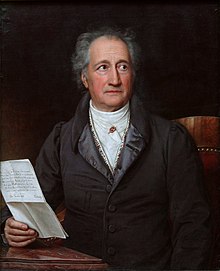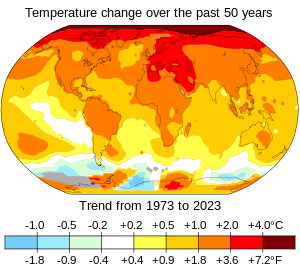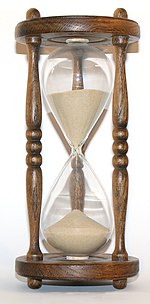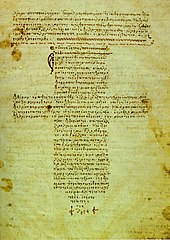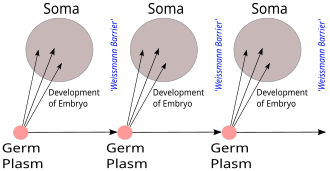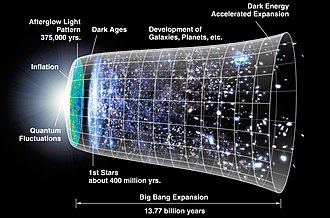
Science
This is a top level category. The other top level categories are:
295 episodes
The Evolution of Lungs
Melvyn Bragg and guests discuss the diverse ways animals extract oxygen from air, from the highly tuned lungs that enabled dinosaurs to grow tall and birds to fly high, to buccal pumping.
12 June 2025
Featuring: Steve Brusatte, Emily Rayfield, Jonathan Codd
Lise Meitner
Melvyn Bragg and guests discuss the only woman to have an atomic element named solely after her (Meitnerium), in recognition of her role in solving the question of nuclear fission.
08 May 2025
Featuring: Jess Wade, Frank Close, Steven Bramwell
ScienceFellows of the American Academy of Arts and SciencesJewish women scientistsWinners of the Max Planck MedalForeign members of the Royal SocietyAustrian LutheransConverts to Lutheranism from JudaismMembers of the Royal Swedish Academy of SciencesWomen nuclear physicistsDiscoverers of chemical elementsRecipients of the Austrian Decoration for Science and ArtRecipients of the Pour le Mérite (civil class)The Habitability of Planets
Melvyn Bragg and guests discuss some of the ideas on the chemistry that was needed for life to begin and thrive on Earth and the implications for where we may find life elsewhere.
12 December 2024
Featuring: Jayne Birkby, Saidul Islam, Oliver Shorttle
The Antikythera Mechanism
Melvyn Bragg and guests discuss the 2,000-year-old Greek astronomical computer, one of the most important discoveries in marine archaeology.
14 November 2024
Featuring: Mike Edmunds, Jo Marchant, Liba Taub
Wormholes
Melvyn Bragg and guests discuss the origins of the idea that there might be shortcuts between galaxies and the challenges when proving these are not just unlikely but impossible.
26 September 2024
Featuring: Toby Wiseman, Katy Clough, Andrew Pontzen
Mercury
Melvyn Bragg and guests discuss the smallest planet in our solar system, what the Mariner 10 and Messenger missions have revealed and the hopes for the new BepiColombo mission.
02 May 2024
Featuring: Emma Bunce, David Rothery, Carolin Crawford
Nikola Tesla
Melvyn Bragg and guests discuss the inventor who helped the advance of electrification in America at the end of the 19th century and cultivated his reputation as a visionary genius
04 April 2024
Featuring: Simon Schaffer, Jill Jonnes, Iwan Morus
ScienceMembers of the Serbian Academy of Sciences and ArtsNaturalized citizens of the United StatesRadio pioneersMembers of the American Philosophical SocietyPeople associated with electricityAmerican humanistsAmerican electrical engineers, People from ManhattanMental calculatorsDeaths from coronary thrombosis20th-century American engineersHeisenberg's Uncertainty Principle
Melvyn Bragg and guests discuss Werner Heisenberg's breakthrough, aged 23, that led to Nobel Prize judges celebrating him as the creator of quantum mechanics.
29 February 2024
Featuring: Fay Dowker, Harry Cliff, Frank Close
Hormones
Melvyn Bragg and guests discuss the interplay of chemical signals that keep our bodies going from moment to moment throughout our lives without us being immediately aware
8 February 2024
Featuring: Sadaf Farooqi, Rebecca Reynolds, Andrew Bicknell
Albert Einstein
Melvyn Bragg and guests discuss Einstein's impact on the world of physics after his 'miraculous year' in 1905 and why he went on to become so very famous after World War One.
14 September 2023
Featuring: Richard Staley, Diana Kormos Buchwald, John Heilbron
ScienceMembers of the Royal Netherlands Academy of Arts and SciencesPhilosophy of science20th-century American male writersAmerican male non-fiction writersStateless peopleNaturalised citizens of Austria20th-century American inventors, Members of the United States National Academy of SciencesAmerican humanistsNobel laureates in PhysicsRecipients of Franklin MedalJewish German physicists, Jewish scientistsPhilosophers of mathematicsJewish agnosticsGerman agnosticsGerman Ashkenazi JewsAmerican Ashkenazi Jews, American Zionists, American agnostics, German Zionists20th-century American engineersAcademic staff of ETH ZurichJewish socialistsAnti-nationalistsEuropean democratic socialistsNaturalized citizens of the United StatesPantheistsAlbert EinsteinMembers of the American Philosophical SocietyWinners of the Max Planck MedalJewish emigrants from Nazi Germany to the United StatesPhilosophers of scienceGerman male non-fiction writersJupiter
Melvyn Bragg and guests discuss the largest planet in our solar system.
29 June 2023
Featuring: Michele Dougherty, Leigh Fletcher, Carolin Crawford
Mitochondria
Melvyn Bragg and guests discuss the power-packs within cells in all complex life on Earth: they are absolutely central to the way that cells work and the way we live.
01 June 2023
Featuring: Mike Murphy, Florencia Camus, Nick Lane
Linnaeus
Melvyn Bragg and guests discuss the pioneering 18th century Swedish botanist, who devised a method of naming species and a new system for classifying plants and animals.
20 April 2023
Featuring: Staffan Müller-Wille, Stella Sandford, Steve Jones
ScienceTaxon authorities of Hypericum species18th-century lexicographers, 18th-century writers in LatinMembers of the Prussian Academy of SciencesFellows of the Royal SocietyMembers of the American Philosophical SocietyBotanical nomenclatureMembers of the Royal Swedish Academy of SciencesMembers of the French Academy of SciencesPaul Erdős
Melvyn Bragg and guests discuss the life and work of the highly prolific, itinerant 20th century Hungarian mathematician, who enjoyed an unrivalled reputation for problem-solving.
23 Feb 2023
Featuring: Colva Roney-Dougal, Timothy Gowers, Andrew Treglown
SciencePrinceton University facultyInstitute for Advanced Study visiting scholarsSet theoristsAcademics of the Victoria University of ManchesterMembers of the Royal Netherlands Academy of Arts and SciencesForeign members of the Royal SocietyMental calculatorsForeign associates of the National Academy of SciencesJewish agnosticsJewish atheistsTycho Brahe
Melvyn Bragg and guests discuss the innovative 16th-century Danish astronomer, renowned for the accuracy of his observations, all taken before the invention of the telescope.
2 February 2023
Featuring: Ole Grell, Adam Mosley, Emma Perkins
Superconductivity
Melvyn Bragg and guests discuss ideas about why some materials lose their electrical resistance at low temperatures and expel their magnetic field and why that matters.
26 January 2023
Featuring: Nigel Hussey, Suchitra Sebastian, Stephen Blundell
The Fish-Tetrapod Transition
Melvyn Bragg and guests discuss the great evolutionary change that gave rise to all the land animals on Earth with a backbone, when some fish developed limbs, lungs and necks.
20 October 2022
Featuring: Emily Rayfield, Michael Coates, Steve Brusatte
The Electron
Melvyn Bragg and guests discuss the discovery of this atomic particle in 1897 and what our growing knowledge of electrons has revealed about our world and may yet reveal.
29 September 2022
Featuring: Victoria Martin, Harry Cliff, Frank Close
The Death of Stars
Melvyn Bragg and guests discuss how so much in the Universe, and much of our understanding of it, depends on changes in stars as they die after millions or billions of stable years
9 June 2022
Featuring: Martin Rees, Carolin Crawford, Mark Sullivan
Homo erectus
Melvyn Bragg and guests discuss one of our ancestors whose span on Earth extended at least five times more than Homo sapiens has so far, and who was found from Africa to Asia.
14 April 2022
Featuring: Peter Kjærgaard, José Joordens, Mark Maslin
Seismology
Melvyn Bragg and guests discuss the rapid advances in the study of earthquakes in the last century and what those have revealed about the structure of our planet.
10 March 2022
Featuring: James Hammond, Rebecca Bell, Zoe Mildon
William and Caroline Herschel
Melvyn Bragg and guests discuss the pioneering brother and sister who, between them, discovered Uranus, comets, double stars and infrared light at the end of the 18th century.
11 November 2021
Featuring: Monica Grady, Carolin Crawford, Jim Bennett
ScienceFellows of the American Academy of Arts and Sciences18th-century German composersFellows of the Royal SocietyBritish scientific instrument makersGerman male classical composersClassical-period composers18th-century German astronomers19th-century German male musiciansHonorary members of the Saint Petersburg Academy of SciencesGerman classical composersGerman LutheransMembers of the Royal Swedish Academy of Sciences18th-century classical composers18th-century keyboardistsRecipients of the Copley MedalThe Evolution of Crocodiles
Melvyn Bragg and guests discuss the extraordinary variety of the animals that dominated life on land before the dinosaurs and why crocodiles should never be called 'living fossils'.
16 September 2021
Featuring: Anjali Goswami, Philip Mannion, Stephen L. Brusatte
Pierre-Simon Laplace
Melvyn Bragg and guests discuss the great French mathematician who tackled questions on the stability of the Solar System and planet rotation and devised the basis for metrication
8 April 2021
Featuring: Marcus du Sautoy, Timothy Gowers, Colva Roney-Dougal
HistoryFellows of the American Academy of Arts and SciencesFrench physicistsLinear algebraistsFellows of the Royal SocietyGrand Officers of the Legion of HonourMembers of the Royal Netherlands Academy of Arts and SciencesFrench agnosticsFrench fluid dynamicists, French mathematicians, French probability theoristsMembers of the Académie Française18th-century French mathematiciansMembers of the Royal Swedish Academy of SciencesMembers of the French Academy of SciencesFrench deistsDeterministsThe Late Devonian Extinction
Melvyn Bragg and guests discuss the disappearance of up to 70 per cent of species roughly 370 million years ago at the end of The Age of Fishes, and the range of possible causes.
11 March 2021
Featuring: Jessica Whiteside, David Bond, Mike Benton
Emilie du Châtelet
Melvyn Bragg and guests discuss the 18th-century mathematical genius whose insights into Newton and Leibniz were part of the great advance in science in the Enlightenment.
4 February 2021
Featuring: Patricia Fara, David Wootton, Judith Zinsser
ScienceFrench physicists18th-century French philosophersDeaths in childbirth18th-century French writersContributors to the Encyclopédie (1751–1772)French women philosophersDeaths from pulmonary embolism18th-century French mathematicians18th-century philosophers18th-century French scientists18th-century French women writersFrench women physicistsEclipses
Melvyn Bragg and guests discuss the progress in our understanding of eclipses from the ancient world onwards and how their predictability illuminates historical records and myths.
31 December 2020
Featuring: Carolin Crawford, Frank Close, Lucie Green
Alan Turing
Melvyn Bragg and guests discuss the ideas and life of the founder of computer science - whose work helped crack enemy codes in WW2 - and his exploration of artificial intelligence.
15 October 2020
Featuring: Leslie Ann Goldberg, Simon Schaffer, Andrew Hodges
ScienceTheoretical biologistsEnglish atheists20th-century English mathematiciansLGBTQ mathematicians, LGBTQ philosophers20th-century English philosophersFellows of the Royal Society20th-century atheistsEnglish logiciansSuicides by cyanide poisoningGay scientistsEnglish inventorsCastrated people20th-century English LGBTQ peopleEnglish people of Scottish descentEnglish people of Irish descentPeople convicted for homosexuality in the United Kingdom, People who have received posthumous pardonsGay academicsComputer designersPaul Dirac
Melvyn Bragg and guests discuss the Bristolian theoretical physicist, ranked alongside Einstein by his peers, who won a Nobel for his work on quantum mechanics.
5 March 2020
Featuring: Graham Farmelo, Valerie Gibson, David Berman
ScienceMembers of the Order of MeritBritish theoretical physicists, Mathematical physicistsFellows of the Royal SocietyAlumni of St John's College, CambridgeForeign associates of the National Academy of SciencesEnglish emigrants to the United StatesNobel laureates in PhysicsRecipients of the Copley MedalInstitute for Advanced Study visiting scholarsEnglish agnostics20th-century British physicists, Members of the Pontifical Academy of SciencesBritish Nobel laureatesForeign members of the USSR Academy of Sciences20th-century English mathematiciansAcademic staff of the University of GöttingenMembers of the American Philosophical SocietyWinners of the Max Planck MedalEnglish Nobel laureatesRoyal Medal winnersSolar Wind
Melvyn Bragg and guests discuss the phenomenon behind the auroras at Earth's poles, the stream of charged particles spreading out from the Sun to the border of the solar system.
23 January 2020
Featuring: Andrew Coates, Helen Mason, Tim Horbury
Hybrids
Melvyn Bragg and guests discuss how some genetically different parents - from different species - can have offspring and what that says about the origin and evolution of species
31 October 2019
Featuring: Sandra Knapp, Nicola Nadeau, Steve Jones
Dorothy Hodgkin
Melvyn Bragg and guests discuss the work, ideas and life of the woman who won the 1964 Nobel Prize in Chemistry for her work on the structures of vitamin B12 and penicillin.
3 October 2019
Featuring: Georgina Ferry, Judith Howard, Patricia Fara
ScienceMembers of the Order of MeritFellows of the Royal SocietyForeign associates of the National Academy of SciencesFellows of Somerville College, OxfordAlumni of Newnham College, CambridgeBritish biochemistsRecipients of the Austrian Decoration for Science and ArtNobel laureates in ChemistryRecipients of the Copley MedalFellows of the American Academy of Arts and SciencesWomen Nobel laureatesAlumni of Somerville College, OxfordBritish Nobel laureatesRecipients of the Dalton Medal20th-century British biologistsForeign members of the USSR Academy of SciencesEnglish Nobel laureates20th-century British chemists, British biophysicists, British crystallographersBritish scientists with disabilitiesRoyal Medal winnersKinetic Theory
Melvyn Bragg and guests discuss the growth of ideas about gas pressure, from Newton's theory that static particles push against each other to Maxwell and Boltzmann's moving atoms.
23 May 2019
Featuring: Steven Bramwell, Isobel Falconer, Ted Forgan
The Evolution of Teeth
Melvyn Bragg and guests discuss ideas about the origins of teeth, their link to hard scales on fish such as sharks and why some species regenerate theirs but humans do not.
11 April 2019
Featuring: Gareth Fraser, Zerina Johanson, Philip Donoghue
Pheromones
Melvyn Bragg and guests discuss how animals influence the behaviour of others of their species by secreting or excreting chemical substances.
21 February 2019
Featuring: Tristram Wyatt, Jane Hurst, Francis Ratnieks
Aristotle's biology
Melvyn Bragg and guests discuss Aristotle's method of biological investigation and the first systematic and thorough study of animals, which was unequalled for almost 2,000 years.
7 February 2019
Featuring: Armand Leroi, Myrto Hatzimichali, Sophia Connell
Emmy Noether
Melvyn Bragg and guests discuss the ideas and achievements of one of the great 20th-century mathematicians.
24 January 2019
Featuring: Colva Roney-Dougal, David Berman, Elizabeth Mansfield
Venus
Melvyn Bragg and guests discuss Earth's neighbouring planet, once thought very similar but now known to be extremely volcanic with a surface temperature of 450C.
27 December 2018
Featuring: Carolin Crawford, Colin Wilson, Andrew Coates
Free Radicals
Melvyn Bragg and guests discuss the reactive atoms and molecules, with single unpaired electrons, linked to the process of ageing as well as normal cell functioning
1 November 2018
Featuring: Nick Lane, Anna Croft, Mike Murphy
Automata
Melvyn Bragg and guests discuss the history of ideas about machines imitating living creatures, and the questions they raise about the differences between machinery and humanity.
20 September 2018
Featuring: Simon Schaffer, Elly Truitt, Franziska Kohlt
Echolocation
Melvyn Bragg and guests discuss how animals such as bats and dolphins evolved to use high frequency sounds to navigate their environments and find their prey.
21 June 2018
Featuring: Kate Jones, Gareth Jones, Dean Waters
The Proton
Melvyn Bragg and guests discuss the growing understanding of the Proton, found in the nuclei of all elements and, with three quarks, balancing the charge of a single electron.
26 April 2018
Featuring: Frank Close, Helen Heath, Simon Jolly
George and Robert Stephenson
Melvyn Bragg and guests discuss George Stephenson, known as the Father of Railways, and his son Robert, designer of the Rocket, whose contribution was arguably even greater.
11 April 2018
Featuring: Michael Bailey, Julia Elton, Colin Divall
Rosalind Franklin
Melvyn Bragg and guests discuss the achievements of the pioneering scientist Rosalind Franklin.
22 February 2018
Featuring: Patricia Fara, Jim Naismith, Judith Howard
Cephalopods
Melvyn Bragg and guests discuss the remarkable biology of octopus, squid, cuttlefish and nautilus, from jet propulsion to changing colour, and what makes them so adaptable.
1 February 2018
Featuring: Louise Allcock, Paul Rodhouse, Jonathan Ablett
Carl Friedrich Gauss
Melvyn Bragg and guests discuss the ideas of Gauss, 'prince of mathematicians', including those on number theory, geometry, probability theory, astronomy and electromagnetism.
30 November 2017
Featuring: Marcus du Sautoy, Colva Roney-Dougal, Nick Evans
ScienceFellows of the American Academy of Arts and SciencesLinear algebraistsMembers of the Göttingen Academy of Sciences and HumanitiesFellows of the Royal SocietyMembers of the Royal Netherlands Academy of Arts and SciencesUniversity of Göttingen alumniAcademic staff of the University of Göttingen18th-century German astronomersHonorary members of the Saint Petersburg Academy of SciencesMental calculatorsGerman LutheransMembers of the Royal Swedish Academy of SciencesCorresponding members of the Saint Petersburg Academy of SciencesOptical physicistsMembers of the Bavarian Academy of SciencesRecipients of the Copley MedalRecipients of the Pour le Mérite (civil class)Feathered dinosaurs
Melvyn Bragg and guests discuss theories about dinosaur feathers. Which ones had them, what sorts of feathers were they and where were they found on their bodies?
26 October 2017
Featuring: Mike Benton, Steve Brusatte, Maria McNamara
Enzymes
Melvyn Bragg and guests discuss enzymes, the proteins that control the speed of chemical reactions in organisms which would otherwise happen too slowly to keep the organisms alive.
1 June 2017
Featuring: Nigel Richards, Sarah Barry, Jim Naismith
Louis Pasteur
Melvyn Bragg and guests discuss the life and work of Louis Pasteur, microbiologist, developer of vaccines, saviour of the French beer and wine industries and preserver of milk.
18 May 2017
Featuring: Andrew Mendelsohn, Anne Hardy, Michael Worboys
ScienceRecipients of the Order of the Medjidie, 1st classMembers of the Serbian Academy of Sciences and ArtsFrench Roman CatholicsMembers of the Royal Netherlands Academy of Arts and SciencesMembers of the American Philosophical SocietyMembers of the Académie Française19th-century French chemistsHonorary members of the Saint Petersburg Academy of SciencesForeign members of the Royal SocietyForeign associates of the National Academy of SciencesÉcole Normale Supérieure alumniMembers of the French Academy of SciencesFrench scientists with disabilitiesGrand Cross of the Legion of HonourRecipients of the Copley MedalPauli's exclusion principle
Melvyn Bragg and guests discuss one of the key principles in quantum mechanics, the Pauli Exclusion Principle, and the life and ideas of Wolfgang Pauli who proposed it.
6 April 2017
Featuring: Frank Close, Michela Massimi, Graham Farmelo
The Paleocene-Eocene Thermal Maximum
Melvyn Bragg and guests discuss the causes and effects of the highest global temperatures in the last 65m years, when Arctic sea surfaces reached up to 23 C for c100,000 years.
16 March 2017
Featuring: Dame Jane Francis, Mark Maslin, Tracy Aze
The Kuiper belt
Melvyn Bragg and guests discuss the Kuiper Belt region, home to Pluto and countless remnants from the beginnings of our solar system.
2 March 2017
Featuring: Carolin Crawford, Monica Grady, Stephen Lowry
Parasitism
Melvyn Bragg and guests discuss Parasitism, the relationship between two species where one benefits at the expense of the other, sometimes killing the host or causing disease.
26 January 2017
Featuring: Steve Jones, Wendy Gibson, Kayla King
Johannes Kepler
Melvyn Bragg and guests discuss the German astronomer Johannes Kepler.
29 December 2016
Featuring: David Wootton, Ulinka Rublack, Adam Mosley
John Dalton
Melvyn Bragg and guests discuss scientist John Dalton, who pioneered the development of atomic theory and carried out research into meteorology and colour blindness.
27 October 2016
Featuring: Jim Bennett, Aileen Fyfe, James Sumner
Plasma
Melvyn Bragg and guests discuss plasma. First observed in 1879, plasma is the most abundant matter in the universe, far more than solid, liquid or gas.
13 October 2016
Featuring: Justin Wark, Kate Lancaster, Bill Graham
Zeno's paradoxes
Melvyn Bragg and guests discuss the paradoxes attributed to Zeno of Elea (c490-430BC) which have stimulated mathematicians and philosophers for millennia.
22 September 2016
Featuring: Marcus du Sautoy, Barbara Sattler, James Warren
The Invention of Photography
Melvyn Bragg and guests discuss the development and impact of photography in the 1830s, with heliographs, sun pictures, photogenic drawing, Daguerre and Fox Talbot.
7 July 2016
Featuring: Simon Schaffer, Elizabeth Edwards, Alison Morrison-Low
Penicillin
Melvyn Bragg and guests discuss Alexander Fleming's discovery of penicillin in 1928, the development of effective antibiotic drugs and the evolution of resistant bacteria.
9 June 2016
Featuring: Laura Piddock, Christoph Tang, Steve Jones
1816, the Year Without a Summer
Melvyn Bragg and guests discuss the link between the eruption of Mt Tambora in 1815, the largest and most lethal in recorded history, with famines in Europe and America in 1816.
21 April 2016
Featuring: Clive Oppenheimer, Jane Stabler, Lawrence Goldman
The Neutron
Melvyn Bragg and guests discuss the neutron in the atomic nucleus, in the laboratory and in the densest stars.
14 April 2016
Featuring: Val Gibson, Andrew Harrison, Frank Close
Robert Hooke
Melvyn Bragg and guests discuss Robert Hooke, the 17th-century scientist with a wide variety of interests from elasticity to microscopes who fell out with Newton.
18 February 2016
Featuring: David Wootton, Patricia Fara, Rob Iliffe
Saturn
Melvyn Bragg and guests discuss Saturn, the most distant planet easily visible to the human eye, with over 60 moons and, with its rings, one of the most striking sights in space.
14 January 2016
Featuring: Carolin Crawford, Michele Dougherty, Andrew Coates
Michael Faraday
Melvyn Bragg and guests discuss Michael Faraday, the most famous British scientist of the 19th century.
25 December 2015
Featuring: Geoffrey Cantor, Laura Herz, Frank James
ScienceFellows of the Royal SocietyMembers of the Royal Netherlands Academy of Arts and SciencesHonorary members of the Saint Petersburg Academy of SciencesForeign associates of the National Academy of SciencesMagneticiansOptical physicists19th-century British physicistsEnglish physicists19th-century English scientistsExperimental physicistsWriters about religion and scienceRecipients of the Copley MedalFellows of the American Academy of Arts and Sciences19th-century British chemistsEnglish ProtestantsMembers of the French Academy of SciencesRecipients of the Pour le Mérite (civil class)People associated with electricityEnglish inventorsBurials at Highgate CemeteryMembers of the Royal Swedish Academy of SciencesRoyal Medal winnersCircadian rhythms
Melvyn Bragg and guests discuss the evolution and role of circadian rhythms, the so-called body clock influencing a daily cycle of physical, behavioural and mental changes.
17 December 2015
Featuring: Russell Foster, Debra Skene, Steve Jones
P v NP
Melvyn Bragg and guests discuss P versus NP, an unsolved problem in maths that asks if the answers to all problems can be found as easily as they can be checked.
5 November 2015
Featuring: Colva Roney-Dougal, Timothy Gowers, Leslie Ann Goldberg
Perpetual motion
Melvyn Bragg and guests discuss how the laws of thermodynamics put a stop to the idea perpetual motion.
24 September 2015
Featuring: Ruth Gregory, Frank Close, Steven Bramwell
Extremophiles
Melvyn Bragg and guests discuss extremophiles, the organisms thriving in very harsh conditions on Earth and providing clues to life forms on other planets.
25 June 2015
Featuring: Monica Grady, Ian Crawford, Nick Lane
The Curies
Melvyn Bragg and his guests discuss the scientific achievements of the Curie family, Marie and Pierre and their daughter Irene Joliot-Curie, all three of whom won Nobel Prizes.
26 March 2015
Featuring: Patricia Fara, Robert Fox, Steven T Bramwell
HistoryFrench atheistsNobel laureates in PhysicsFrench Nobel laureatesFormer Roman CatholicsLegion of Honour refusalsBurials at the Panthéon, ParisExperimental physicistsCorresponding members of the Saint Petersburg Academy of SciencesNaturalized citizens of FranceNobel laureates in ChemistryFrench women physicistsWomen Nobel laureatesAcademic staff of the University of ParisCorresponding Members of the Russian Academy of Sciences (1917–1925)Honorary members of the USSR Academy of Sciences, Recipients of the Matteucci MedalDiscoverers of chemical elementsFrench agnostics19th-century French chemistsUniversity of Paris alumniWomen inventorsWomen nuclear physicistsDark matter
Melvyn Bragg and his guests discuss dark matter, the mysterious and invisible substance that is believed to make up most of the universe.
12 March 2015
Featuring: Carolin Crawford, Gresham Professor of Astronomy Carlos Frenk, Anne Green
The Photon
Melvyn Bragg and his guests discuss the photon, the fundamental particle associated with light.
12 February 2015
Featuring: Frank Close, Wendy Flavell, Susan Cartwright
Brunel
Melvyn Bragg and guests discuss Isambard Kingdom Brunel, the Victorian engineer responsible for bridges, tunnels and railways still in use today.
13 November 2014
Featuring: Julia Elton, Ben Marsden, Crosbie Smith
Nuclear Fusion
Melvyn Bragg and his guests discuss the history and science of nuclear fusion, the process that powers stars.
30 October 2014
Featuring: Philippa Browning, Steve Cowley, Justin Wark
e
Melvyn Bragg and his guests discuss Euler's number, also known as e, one of the most important and interesting numbers in mathematics.
25 September 2014
Featuring: Colva Roney-Dougal, June Barrow-Green, Vicky Neale
The Sun
Melvyn Bragg and his guests discuss the science of the sun, source of all our energy.
10 July 2014
Featuring: Carolin Crawford, Yvonne Elsworth, Louise Harra
Robert Boyle
Melvyn Bragg and his guests discuss the life and work of Robert Boyle, a pioneering scientist and one of the first Fellows of the Royal Society.
12 June 2014
Featuring: Simon Schaffer, Michael Hunter, Anna Marie Roos
ScienceFluid dynamicistsIrish Anglicans17th-century English writers17th-century Anglo-Irish peoplePeople educated at Eton CollegePhilosophers of scienceWriters about religion and science17th-century English philosophers17th-century English male writersDiscoverers of chemical elementsIndependent scientistsEnglish physicistsEnglish alchemistsPhotosynthesis
Melvyn Bragg and his guests discuss photosynthesis, a chemical process which drives most life on Earth.
15 May 2014
Featuring: Sandra Knapp, Nick Lane, John F. Allen
States of Matter
Melvyn Bragg and guests discuss the science of matter and the states in which it can exist, from solids, liquids and gases to high-energy plasmas.
3 April 2014
Featuring: Andrea Sella, Athene Donald, Justin Wark
Social Darwinism
Melvyn Bragg and his guests discuss Social Darwinism, a school of thought which attempted to apply Darwin's ideas about evolution to human society.
20 February 2014
Featuring: Adam Kuper, Gregory Radick, Charlotte Sleigh
Catastrophism
Melvyn Bragg and his guests discuss Catastrophism, the idea that the geological record was shaped by a series of natural disasters early in the Earth's history.
30 January 2014
Featuring: Andrew Scott, Jan Zalasiewicz, Leucha Veneer
Complexity
Melvyn Bragg and his guests discuss the science of complex systems, and its importance to understanding the world around us.
19 December 2013
Featuring: Ian Stewart, Jeff Johnson, Eve Mitleton-Kelly
The Microscope
Melvyn Bragg and his guests discuss the microscope, from its invention in the 17th century to the latest sophisticated imaging techniques.
28 November 2013
Featuring: Jim Bennett, Colin Humphreys, Michelle Peckham
Galen
Melvyn Bragg and guests discuss Roman physician and medical theorist Galen.
10 October 2013
Featuring: Vivian Nutton, Helen King, Caroline Petit
Exoplanets
Melvyn Bragg and guests discuss exoplanets, planets detected outside our solar system.
3 October 2013
Featuring: Carolin Crawford, Don Pollacco, Suzanne Aigrain
Pascal
Melvyn Bragg and his guests discuss the life and work of the French polymath Blaise Pascal.
19 September 2013
Featuring: David Wootton, Michael Moriarty, Michela Massimi
CultureFrench Roman Catholic writersCartesianismChristian humanistsCritics of atheismFrench physicistsCatholic philosophersConverts to Roman CatholicismFrench fluid dynamicists, French mathematicians, French probability theoristsPeople with hypochondriasisRoman Catholic mysticsChristian apologists17th-century Christian mysticsAphoristsThe Invention of Radio
Melvyn Bragg and his guests discuss the invention of radio.
4 July 2013
Featuring: Simon Schaffer, Elizabeth Bruton, John Liffen
Relativity
Melvyn Bragg and his guests discuss Einstein's theory of relativity, a hypothetical framework that transformed our understanding of the universe.
6 June 2013
Featuring: Ruth Gregory, Martin Rees, Roger Penrose
Cosmic rays
Melvyn Bragg and his guests discuss cosmic rays, the mysterious high-energy particles that constantly bombard Earth.
16 May 2013
Featuring: Carolin Crawford, Alan Watson, Tim Greenshaw
Pitt Rivers
Melvyn Bragg and his guests discuss the work of the Victorian anthropologist and archaeologist Augustus Pitt-Rivers.
28 February 2013
Featuring: Adam Kuper, Richard Bradley, Dan Hicks
Comets
Melvyn Bragg and his guests discuss comets, the 'dirty snowballs' of the solar system which orbit the sun.
17 January 2013
Featuring: Monica Grady, Paul Murdin, Don Pollacco
Crystallography
Melvyn Bragg and his guests discuss the history and achievements of crystallography, a scientific discipline that has revolutionised our understanding of the world.
29 November 2012
Featuring: Judith Howard, Chris Hammond, Mike Glazer
Fermat's Last Theorem
Melvyn Bragg and his guests discuss Fermat's Last Theorem, a mathematical puzzle which took more than three hundred and fifty years to solve.
25 October 2012
Featuring: Marcus du Sautoy, Vicky Neale, Samir Siksek
The Measurement of Time
Melvyn Bragg and his guests discuss the measurement of time and the various methods used for doing so over millennia of human history.
29 March 2012
Featuring: Kristen Lippincott, Jim Bennett, Jonathan Betts
Conductors and Semiconductors
Melvyn Bragg and his guests discuss the physics of electricity: why some materials conduct it and others do not, and how these properties can be usefully exploited.
23 February 2012
Featuring: Frank Close, Jenny Nelson, Lesley Cohen
The Scientific method
Melvyn Bragg and his guests discuss the Scientific Method, the systematic and analytical approach to scientific discovery.
26 January 2012
Featuring: Simon Schaffer, John Worrall, Michela Massimi
Ptolemy and Ancient Astronomy
Melvyn Bragg and his guests discuss the last of the great Greek astronomers of antiquity, Ptolemy, and his influence on ancient and medieval astronomy.
17 November 2011
Featuring: Liba Taub, Jim Bennett, Charles Burnett
The Moon
Melvyn Bragg and his guests discuss the origins, science and mythology of the moon. Man may have landed on the moon, but our 'twin planet' in many ways still remains a mystery.
3 November 2011
Featuring: Paul Murdin, Carolin Crawford, Ian Crawford
The Hippocratic Oath
Melvyn Bragg and his guests discuss the Hippocratic Oath, the most celebrated text in Western medicine.
15 September 2011
Featuring: Vivian Nutton, Helen King, Peter Pormann
The Neutrino
Melvyn Bragg and his guests discuss the neutrino, a mysterious subatomic particle which is one of the most numerous, and least understood, objects in the universe.
14 April 2011
Featuring: Frank Close, Susan Cartwright, David Wark
The Age of the Universe
Melvyn Bragg and his guests discuss a question which has obsessed cosmologists for millennia: how old is the Universe?
3 March 2011
Featuring: Martin Rees, Carolin Crawford, Carlos Frenk
The Nervous System
Melvyn Bragg and his guests discuss the history and science of the nervous system, the network of tissues which allows parts of the body to communicate with each other.
10 February 2011
Featuring: Colin Blakemore, Vivian Nutton, Tilli Tansey
Random and Pseudorandom
Melvyn Bragg and his guests discuss mathematical randomness and pseudorandomness, ideas important to cryptography, statistics and weather forecasting.
13 January 2011
Featuring: Marcus du Sautoy, Colva Roney-Dougal, Timothy Gowers
Thomas Edison
Melvyn Bragg and his guests discuss the work of Thomas Edison, one of the great inventors and cultural figures of modern America.
9 December 2010
Featuring: Simon Schaffer, Kathleen Burk, Iwan Morus
Science20th-century American inventors, Members of the United States National Academy of SciencesAmerican people of English descentMembers of the American Philosophical SocietyPeople associated with electricityCongressional Gold Medal recipientsHall of Fame for Great Americans inducteesAmerican electrical engineers, People from ManhattanHonorary members of the USSR Academy of Sciences, Recipients of the Matteucci MedalMembers of the Royal Swedish Academy of SciencesAmerican people of Dutch descentRecipients of Franklin Medal19th-century American businesspeopleAmerican deistsWomen and Enlightenment Science
Melvyn Bragg and his guests discuss the role played by women in Enlightenment science.
4 November 2010
Featuring: Patricia Fara, Karen O'Brien, Judith Hawley
Logic
Melvyn Bragg and his guests discuss the history of logic, the study of reasoning and argument.
21 October 2010
Featuring: A. C. Grayling, Peter Millican, Rosanna Keefe
Pliny's Natural History
Melvyn Bragg and guests discuss Pliny the Elder's Natural History, a comprehensive and influential encyclopedia of the natural sciences written in the first century AD.
8 July 2010
Featuring: Serafina Cuomo, Aude Doody, Liba Taub
Antarctica
Melvyn Bragg and guests discuss the history of Antarctica: its geology and physical geography and the story of human exploration of the continent.
24 June 2010
Featuring: Jane Francis, Julian Dowdeswell, David Walton
The Neanderthals
Melvyn Bragg and guests discuss the Neanderthals: who they were, how they lived, and how we are related to them.
17 June 2010
Featuring: Simon Conway Morris, Chris Stringer, Danielle Schreve
The Infant Brain
Melvyn Bragg and guests Usha Goswami, Annette Karmiloff-Smith and Denis Mareschal discuss what new research reveals about the infant brain.
4 March 2010
Featuring: Usha Goswami, Annette Karmiloff-Smith, Denis Mareschal
The Unintended Consequences of Mathematics
Melvyn Bragg and guests explore the unintended consequences of mathematical discoveries, from alternating current to predicting the path of asteroids.
11 February 2010
Featuring: John D. Barrow, Colva Roney-Dougal, Marcus du Sautoy
Pythagoras
Melvyn Bragg and guests discuss the ideas and influence of the Greek mathematician Pythagoras and his followers, the Pythagoreans.
10 December 2009
Featuring: Ian Stewart, Serafina Cuomo, John O'Connor
PhilosophyFounders of religionsAncient Greek metaphysiciansAncient Greek political refugeesAncient Greek geometersAncient SamiansAncient Greek music theoristsAncient Greek philosophers of mind5th-century BC religious leaders, 6th-century BC religious leaders6th-century BC Greek philosophersAncient occultists5th-century BC Greek philosophersRadiation
Melvyn Bragg and guests discuss the history of the discovery of radiation, from the idea that light consisted of waves, through electromagnetism to the naming of gamma rays.
12 November 2009
Featuring: Jim Al-Khalili, Frank Close, Frank James
Calculus
Melvyn Bragg and guests Patricia Fara, Simon Schaffer and Jackie Stedall discuss the dispute between Sir Isaac Newton and Gottfried Leibniz over who invented calculus.
24 September 2009
Featuring: Simon Schaffer, Patricia Fara, Jackie Stedall
Logical Positivism
Melvyn Bragg and guests including Barry Smith discuss Logical Positivism, the radical philosophy of the Vienna Circle.
2 July 2009
Featuring: Barry Smith, Nancy Cartwright, Thomas Uebel
The Vacuum of Space
Melvyn Bragg and guests discuss the Vacuum of Space, from the innards of the atom to the outer reaches of space.
30 April 2009
Featuring: Frank Close, Jocelyn Bell Burnell, Ruth Gregory
Baconian Science
Melvyn Bragg and guests Patricia Fara, Stephen Pumfrey and Rhodri Lewis discuss the Jacobean lawyer, political fixer and alleged founder of modern science Francis Bacon.
2 April 2009
Featuring: Stephen Pumfrey, Patricia Fara, Rhodri Lewis
The Library of Alexandria
Melvyn Bragg and guests Simon Goldhill, Serafina Cuomo and Matthew Nichols discuss the Library of Alexandria, one of the greatest libraries in history.
12 March 2009
Featuring: Simon Goldhill, Matthew Nicholls, Serafina Cuomo
The Measurement problem in Physics
Melvyn Bragg and guests discuss the the measurement problem, one of the deepest problems in contemporary physics.
5 March 2009
Featuring: Basil Hiley, Simon Saunders, Roger Penrose
Darwin: On the Origin of Species
Melvyn Bragg presents a series about the life and work of Charles Darwin. How Darwin was eventually persuaded to publish On the Origin of Species in November 1859.
7 January 2009
Featuring: Jim Moore, Steve Jones, Jim Secord, Johannes Vogel
Darwin: The Voyage of the Beagle
Melvyn Bragg presents a series about the life and work of Charles Darwin. Darwin's expedition aboard the Beagle and how it influenced and provided evidence for his theories.
6 January 2009
Featuring: Jim Moore, Steve Jones, David Norman, Jenny Clack
Darwin: On the Origins of Charles Darwin
Melvyn Bragg presents a series about the life and work of Charles Darwin. Darwin's early life and time at Cambridge, where his interests shifted from religion to natural science.
5 January 2009
Featuring: Jim Moore, Steve Jones, David Norman, Colin Higgins
ScienceEnglish travel writersTheoretical biologistsFellows of the Royal SocietyMembers of the Royal Netherlands Academy of Arts and SciencesEnglish AnglicansUtilitariansEnglish abolitionists19th-century British biologists, 19th-century English naturalists, British evolutionary biologists, Fellows of the Linnean Society of London, Fellows of the Royal Geographical Society, Fellows of the Zoological Society of LondonBurials at Westminster AbbeyEnglish sceptics19th-century AnglicansRecipients of the Copley MedalAlumni of Christ's College, CambridgeEnglish agnosticsCharles DarwinAlumni of the University of Edinburgh19th-century English writersCircumnavigators of the globeRecipients of the Pour le Mérite (civil class)Members of the American Philosophical SocietyDeaths from coronary thrombosisMembers of the Royal Swedish Academy of SciencesMembers of the Lincean AcademyIndependent scientistsHuman evolutionRoyal Medal winnersThe Physics of Time
Melvyn Bragg and guests discuss the physics of time - what is it and does it even exist?
18 December 2008
Featuring: Jim Al-Khalili, Monica Grady, Ian Stewart
Heat
Melvyn Bragg discusses the history of scientific ideas about heat from fire to thermodynamics.
4 December 2008
Featuring: Simon Schaffer, Hasok Chang, Joanna Haigh
Neuroscience
Melvyn Bragg and guests David Papineau, Martin Conway and Gemma Calvert discuss recent developments in neuroscience and examine the relationship between the mind and the brain.
13 November 2008
Featuring: Martin Conway, Gemma Calvert, David Papineau
Vitalism
Melvyn Bragg and guests discuss Vitalism, an 18th and 19th century quest for the spark of life and the science behind Frankenstein.
16 October 2008
Featuring: Patricia Fara, Andrew Mendelsohn, Pietro Corsi
Gödel's Incompleteness Theorems
Melvyn Bragg and guests discuss the mathematician Kurt Godel and his work at the very limits of maths.
9 October 2008
Featuring: Marcus du Sautoy, John D. Barrow, Philip Welch
The Music of the Spheres
Melvyn Bragg and guests discuss the music of the spheres, the idea that the revolution of the planets generates a celestial harmony of profound beauty
19 June 2008
Featuring: Peter Forshaw, Jim Bennett, Angela Voss
Lysenkoism
Melvyn Bragg discusses the dark world of science under Joseph Stalin through the career of his chief geneticist Trofim Lysenko.
5 June 2008
Featuring: Robert Service, Steve Jones, Catherine Merridale
The Laws of Motion
Melvyn Bragg and guests discuss Isaac Newton’s Laws of Motion – three sentences that explain the movements of everything from planets to ping pong balls.
3 April 2008
Featuring: Simon Schaffer, Raymond Flood, Rob Iliffe
Ada Lovelace
Melvyn Bragg and guests discuss the 19th century mathematician and hard living daughter of Lord Byron, Ada Lovelace.
6 March 2008
Featuring: Patricia Fara, Doron Swade, John Fuegi
The Multiverse
Melvyn Bragg and guests will be leaving the studio, the planet and indeed, the universe to take a tour of the Multiverse
21 February 2008
Featuring: Martin Rees, Fay Dowker, Bernard Carr
Plate Tectonics
Melvyn Bragg and guests discuss how the geological theory of plate tectonics revolutionised our understanding of the planet on which we live
24 January 2008
Featuring: Richard Corfield, Joe Cann, Lynne Frostick
The Four Humours
Melvyn Bragg discusses the four humours, a medical theory that saw the body as a concoction of four essential juices.
20 December 2007
Featuring: David Wootton, Vivian Nutton, Noga Arikha
Genetic Mutation
Melvyn Bragg discusses mutation in genetics and evolution, unlocking the secrets of life and death.
6 December 2007
Featuring: Steve Jones, Adrian Woolfson, Linda Partridge
The Fibonacci Sequence
Melvyn Bragg and guests discuss the Fibonacci Sequence, an infinite string of numbers to be found in Renaissance paintings, modern architecture and the structure of flowers.
29 November 2007
Featuring: Marcus du Sautoy, Jackie Stedall, Ron Knott
Oxygen
Melvyn Bragg discusses the discovery of Oxygen by Joseph Priestley and Antoine Lavoisier and the Anglo-French feud that accompanied it.
15 November 2007
Featuring: Simon Schaffer, Jenny Uglow, Hasok Chang
Antimatter
Melvyn Bragg discusses theories of Antimatter in particle physics and cosmology and finds out why there isn’t more of it in the universe.
4 October 2007
Featuring: Val Gibson, Frank Close, Ruth Gregory
The Permian-Triassic Boundary
Melvyn Bragg and guests discuss the Permian-Triassic boundary and the greatest mass extinction the world has ever known.
28 June 2007
Featuring: Richard Corfield, Mike Benton, Jane Francis
Renaissance Astrology
Melvyn Bragg and guests discuss Renaissance Astrology, an essential part of Renaissance thinking on magic, music, medicine, politics, cosmology, destiny and much more.
14 June 2007
Featuring: Peter Forshaw, Lauren Kassell, Jonathan Sawday
Gravitational Waves
Melvyn Bragg and guests discuss Gravitational Waves, mysterious phenomena that ripple the fabric of space-time.
17 May 2007
Featuring: Jim Al-Khalili, Carolin Crawford, Sheila Rowan
Symmetry
Melvyn Bragg discusses symmetry in art and nature. From snowflakes and butterflies to the music of Bach and the poems of Pushkin.
19 April 2007
Featuring: Fay Dowker, Marcus du Sautoy, Ian Stewart
Microbiology
Melvyn Bragg and guests discuss the history of microbiology and how microscopic creatures dominate life on earth.
8 March 2007
Featuring: John Dupré, Anne Glover, Andrew Mendelsohn
Optics
Melvyn Bragg and guests discuss the history of optics – from star gazing with a telescope to examining lice under a microscope
1 March 2007
Featuring: Simon Schaffer, Jim Bennett, Emily Winterburn
Popper
Melvyn Bragg discusses the philosopher Karl Popper, author of The Open Society and a seminal thinker about science.
8 February 2007
Featuring: John Worrall, Anthony O'Hear, Nancy Cartwright
PhilosophyBritish political philosophersEpistemologistsCambridge University Moral Sciences ClubForeign associates of the National Academy of SciencesTheorists on Western civilizationBritish ethicistsPhilosophers of logicKnights BachelorLogiciansPresidents of the Aristotelian SocietySocial philosophersPhilosophers of technologyRationalistsAristotelian philosophersPhilosophers of economicsWriters about religion and scienceWriters about globalizationBritish philosophers of educationBritish social liberalsRecipients of the Austrian Decoration for Science and ArtBritish male non-fiction writersPhilosophers of culturePhilosophers of mathematicsBritish historians of philosophyJewish agnosticsAcademics of the London School of Economics, British philosophers of scienceCritics of religions20th-century British philosophers20th-century Austrian philosophers, Austrian agnostics, Austrian essayists, Austrian logicians, British agnostics, British logicians, British people of Austrian-Jewish descent, Naturalised citizens of the United Kingdom, Writers from ViennaOntologistsPhilosophers of mindRecipients of the Pour le Mérite (civil class)MetaphysiciansJewish philosophersPolitical philosophersPhilosophers of religionBritish consciousness researchers and theoristsJewish ethicistsMembers of the Order of the Companions of HonourWriters about activism and social change20th-century British essayistsCritics of MarxismPhilosophers of historyFellows of the British AcademyMetaphysics writersBritish male essayistsArchimedes
Melvyn Bragg and guests discuss the Greek mathematician Archimedes, brilliant with numbers and unexpectedly good at defensive siege warfare.
25 January 2007
Featuring: Jackie Stedall, Serafina Cuomo, George Phillips
The Jesuits
Melvyn Bragg discusses the Jesuits and their role in the education, art, politics and mythology of the Counter-Reformation.
18 January 2007
Featuring: Nigel Aston, Simon Ditchfield, Dame Olwen Hufton
Mars
Melvyn Bragg and guests discuss the planet Mars. Named after the Roman god of war, Mars has been a source of continual fascination.
11 January 2007
Featuring: John Zarnecki, Colin Pillinger, Monica Grady
The Speed of Light
Melvyn Bragg and guests discuss the speed of light, from its first measurement in the 17th Century to Einstein’s groundbreaking ideas on relativity.
30 November 2006
Featuring: John Barrow, Iwan Morus, Jocelyn Bell Burnell
The Poincaré conjecture
Melvyn Bragg and guests discuss the Poincaré Conjecture, a puzzle that may explain the shape of the universe.
2 November 2006
Featuring: June Barrow-Green, Ian Stewart, Marcus du Sautoy
The Needham Question
Melvyn Bragg and guests discuss the Needham Question, which asks why China’s medieval technological advancement was overtaken by that of a relative backwater called Europe.
19 October 2006
Featuring: Chris Cullen, Tim Barrett, Frances Wood
Humboldt
Melvyn Bragg discusses the Prussian naturalist and explorer, Alexander Von Humboldt. A hero in South America; Charles Darwin described him as ‘the greatest scientific traveller who ever lived’.
28 September 2006
Featuring: Jason Wilson, Patricia Fara, Jim Secord
ScienceUniversity of Jena alumniHonorary members of the Saint Petersburg Academy of Sciences18th-century German LGBTQ peopleGerman LutheransGerman travel writersForeign members of the Royal SocietyRecipients of the Copley MedalFellows of the American Academy of Arts and SciencesMembers of the Göttingen Academy of Sciences and HumanitiesUniversity of Göttingen alumniHuman geographersGay scientistsMembers of the French Academy of SciencesRecipients of the Pour le Mérite (civil class)Members of the Prussian Academy of SciencesMembers of the American Philosophical SocietyMembers of the Royal Swedish Academy of SciencesMembers of the Bavarian Academy of SciencesIndependent scientistsGalaxies
Melvyn Bragg and guests discuss the galaxies; spread out across the void of space like spun sugar, but harbouring in their centres super-massive black holes.
29 June 2006
Featuring: John Gribbin, Carolin Crawford, Robert Kennicutt
Carbon
Melvyn Bragg and guests discuss Carbon, the vital component of all living things
15 June 2006
Featuring: Harry Kroto, Monica Grady, Ken Teo
The Heart
Melvyn Bragg and guests discuss the history of ideas about the heart, a symbol to our spiritual, emotional, and moral core.
1 June 2006
Featuring: David Wootton, Fay Bound Alberti, Jonathan Sawday
Astronomy and Empire
Melvyn Bragg discusses the relationship between astronomy and the British Empire, how astronomical science provided a means for navigation and British naval control.
4 May 2006
Featuring: Simon Schaffer, Kristen Lippincott, Allan Chapman
The Royal Society
Melvyn Bragg discusses how the formation of the Royal Society heralded the dawning of a new scientific era in the 17th century.
23 March 2006
Featuring: Stephen Pumfrey, Lisa Jardine, Michael Hunter
ScienceSocial history of the United KingdomLearned societies of the United Kingdom, Members of the International Council for Science, Members of the International Science Council, National academies of sciences, Non-profit organisations based in London, Organisations based in London with royal patronage, Organizations associated with the COVID-19 pandemic, Professional associations based in the United Kingdom, Scientific organizations established in 16601660 establishments in EnglandRoyal SocietyNegative numbers
Melvyn Bragg discusses the history of negative numbers, from the trailblazing Chinese to the suspicious Europeans.
9 March 2006
Featuring: Ian Stewart, Colva Roney-Dougal, Raymond Flood
Human Evolution
Melvyn Bragg discusses the story of human evolution, a tale not of one species, but of many – some of whom walked the Earth at the same time.
16 February 2006
Featuring: Steve Jones, Fred Spoor, Margaret Clegg
Relativism
Melvyn Bragg discusses Relativism, a school of philosophical thought which holds to the idea that there are no absolute truths.
19 January 2006
Featuring: Barry Smith, Jonathan Rée, Kathleen Lennon
Prime Numbers
Melvyn Bragg discusses prime numbers, their still mysterious patterning and the secrets might hold about the nature of atoms.
12 January 2006
Featuring: Marcus du Sautoy, Robin Wilson, Jackie Stedall
Artificial Intelligence
Melvyn Bragg discusses artificial intelligence and whether a computer could imitate the operations of the human mind.
8 December 2005
Featuring: Jon Agar, Alison Adam, Igor Aleksander
The Graviton
Melvyn Bragg discusses the search for the Graviton, a hypothetical elementary particle that offers a unifying theory of gravitational force.
24 November 2005
Featuring: Roger Cashmore, Jim Al-Khalili, Sheila Rowan
Asteroids
Melvyn Bragg discusses asteroids, once regarded as “the vermin of the solar system” but now viewed as key to our understanding of the beginning of time.
3 November 2005
Featuring: Monica Grady, Carolin Crawford, John Zarnecki
Mammals
Melvyn Bragg discusses the rise of the mammals which began 65 million years ago with the extinction of the dinosaurs.
13 October 2005
Featuring: Richard Corfield, Steve Jones, Jane Francis
The KT Boundary
Melvyn Bragg discusses the geological KT Boundary that points to a cataclysmic event in the history of the Earth; one that led to the extinction of the dinosaurs and the rise of the mammals.
23 June 2005
Featuring: Simon Kelley, Jane Francis, Mike Benton
Renaissance Maths
Melvyn Bragg discusses Renaissance Mathematics and the change in the understanding of numbers, movement, time and even nature itself, culminating in the calculus of Isaac Newton and Gottfried Leibniz.
2 June 2005
Featuring: Robert Lee Kaplan, Jim Bennett, Jackie Stedall
Perception and the Senses
Melvyn Bragg discusses perception: how the brain reacts to the mass of data continually crowding it and examines what governs our perception of the world.
28 April 2005
Featuring: Richard Gregory, David Moore, Gemma Calvert
Dark Energy
Melvyn Bragg discusses the recently discovered, and mysteriously named, 'dark energy' which may make up 70% of the universe.
17 March 2005
Featuring: Martin Rees, Carolin Crawford, Roger Penrose
Alchemy
Melvyn Bragg discusses the pursuit of Alchemy, its history and legacy. What ideas could transform base metals into gold?
24 February 2005
Featuring: Peter Forshaw, Lauren Kassell, Stephen Pumfrey
The Cambrian Period
Melvyn Bragg discusses the Cambrian period, a time when evolution took a leap, and life on this planet suddenly went to being large, complex, numerous and dizzyingly diverse.
17 February 2005
Featuring: Simon Conway Morris, Richard Corfield, Jane Francis
The Mind/Body Problem
Melvyn Bragg discusses the history of thought about the mind/body problem in philosophy. Does the mind rule the body or the body rule the mind? And where does the mind reside?
13 January 2005
Featuring: A. C. Grayling, Julian Baggini, Sue James
The Second Law of Thermodynamics
Melvyn Bragg discusses the Second Law of Thermodynamics from steam and boiling an egg to the Big Bang.
16 December 2004
Featuring: John Gribbin, Peter Atkins, Monica Grady
Jung
Melvyn Bragg discusses the mind and theories of the psychiatrist Carl Jung who wrote about the concepts of 'introverted' and 'extroverted', and the significance of the collective history of Mankind.
2 December 2004
Featuring: Brett Kahr, Ronald Hayman, Andrew Samuels
Higgs Boson
Melvyn Bragg discusses the Higgs Boson; the God particle, which explains how all mass behaves. It is a legend among physicists but does it exist?
18 November 2004
Featuring: Jim Al-Khalili, David Wark, Roger Cashmore
Electrickery
Melvyn Bragg discusses the dawn of the age of electricity, from lightning conductors to leaping soldiers and Franklin to Frankenstein.
4 November 2004
Featuring: Simon Schaffer, Patricia Fara, Iwan Morus
The Origins of Life
Melvyn Bragg discusses how the world’s first organic matter originated, nearly four billion years ago. What is the single common ancestor from which all living matter on our planet derives?
23 September 2004
Featuring: Richard Dawkins, Richard Corfield, Linda Partridge
Pi
Melvyn Bragg discusses the history of the longest and most detailed number in nature and examines what it tells us about the hidden complexities of our world.
2 September 2004
Featuring: Robert Lee Kaplan, Eleanor Robson, Ian Stewart
Renaissance Magic
Melvyn Bragg discusses the Renaissance obsession with Magic, including the serious and religious study of the 'hermetic texts' and the cabbala.
17 June 2004
Featuring: Peter Forshaw, Valery Rees, Jonathan Sawday
The Planets
Melvyn Bragg discusses our knowledge of the planets in both our and other solar systems. What causes them to form and what is the likelihood of there being another with properties similar to Earth’s?
27 May 2004
Featuring: Paul Murdin, Hugh Jones, Carolin Crawford
Zero
Melvyn Bragg discusses the history of the number between 1 and -1, which has strange and uniquely beguiling qualities. How was zero invented and what role does it play in mathematics today?
13 May 2004
Featuring: Robert Kaplan, Ian Stewart, Lisa Jardine
Hysteria
Melvyn Bragg discusses a problematic notion which can be an emotional condition, a syndrome, an over-reaction, or the physical signs of trauma, which became the bedrock for psychoanalysis.
22 April 2004
Featuring: Juliet Mitchell, Rachel Bowlby, Brett Kahr
Theories of Everything
Melvyn Bragg discusses the prospect of a single theory to solve the riddle of black holes, the Big Bang and the mystery of time travel. Why do we need one and what would it mean if we had it?
25 March 2004
Featuring: Brian Greene, John Barrow, Val Gibson
Dreams
Melvyn Bragg discusses the function and interpretation of dreams. Why are neuroscientists starting to find reasons to take dreams seriously again?
4 March 2004
Featuring: VS Ramachandran, Mark Solms, Martin Conway
Rutherford
Melvyn Bragg discusses Ernest Rutherford. He is seen as the father of nuclear science, a great charismatic figure who mapped the landscape of the sub-atomic world.
19 February 2004
Featuring: Simon Schaffer, Jim Al-Khalili, Patricia Fara
ScienceHonorary Fellows of the Royal Society of EdinburghPersons of National Historic Significance (Canada)Foreign associates of the National Academy of Sciences19th-century British physicistsKnights BachelorAcademics of the Victoria University of ManchesterBurials at Westminster AbbeyExperimental physicistsRecipients of Franklin MedalNobel laureates in ChemistryRecipients of the Copley MedalFellows of Trinity College, Cambridge20th-century British physicists, Members of the Pontifical Academy of SciencesRadio pioneersCorresponding Members of the Russian Academy of Sciences (1917–1925)Honorary members of the USSR Academy of Sciences, Recipients of the Matteucci MedalBritish Nobel laureatesDiscoverers of chemical elementsRecipients of the Dalton MedalCavendish Professors of PhysicsMembers of the American Philosophical SocietyEnglish Nobel laureates20th-century British scientistsCryptography
Melvyn Bragg discusses the history of codes including the Caesar cipher, the ‘uncrackable’ Vigenere code, the Enigma machine and the cryptography that underwrites the information age.
29 January 2004
Featuring: Simon Singh, Fred Piper, Lisa Jardine
Lamarck and Natural Selection
Melvyn Bragg discusses Jean-Baptiste Lamarck, the 18th century French scientist, and his theory of Natural Selection. Who was he and how far did he pave the way for Darwin?
26 December 2003
Featuring: Sandy Knapp, Steve Jones, Simon Conway Morris
Ageing the Earth
Melvyn Bragg discusses the Age of the Earth, and how to make sense of four and half billions years of time.
20 November 2003
Featuring: Richard Corfield, Hazel Rymer, Henry Gee
Infinity
Melvyn Bragg discusses a core concept in modern maths which philosophers and mathematicians have continued to grapple with; what is mathematical infinity and does it exist in nature?
23 October 2003
Featuring: Ian Stewart, Robert Kaplan, Sarah Rees
Maxwell
Melvyn Bragg discusses the life and work of the often overlooked 19th century Scottish scientist, and his enormous contribution to the creation of the technological age in which we live.
2 October 2003
Featuring: Simon Schaffer, Peter Harman, Joanna Haigh
ScienceAcademics of King's College LondonDeaths from stomach cancer in EnglandBritish theoretical physicists, Mathematical physicistsFellows of the Royal SocietyPeople associated with electricityColor scientistsCavendish Professors of PhysicsMagneticiansAlumni of the University of EdinburghOptical physicistsAlumni of Trinity College, Cambridge19th-century British physicistsNature
Melvyn Bragg discusses the history of man’s attempt to define nature, including the Ancient Greek’s quest to demonstrate the wrath of the gods and the Romantics who set out to philosophise it.
10 July 2003
Featuring: Jonathan Bate, Roger Scruton, Karen Edwards
Vulcanology
Melvyn Bragg discusses the formation and eruption of volcanoes, from the destruction of Pompeii to the risk of a Tsunami.
3 July 2003
Featuring: Hilary Downes, Steve Self, Bill McGuire
Memory
Melvyn Bragg discusses the significance of memory. Is it a repository of events waiting to be plucked to consciousness?
29 May 2003
Featuring: Martin Conway, Mike Kopelman, Kim Graham
The Life of Stars
Melvyn Bragg discusses the life cycle of stars. They are born among vast swirls of gas and dust and they die in stunning explosions.
27 Mar 2003
Featuring: Paul Murdin, Janna Levin, Phil Charles
Meteorology
Melvyn Bragg discusses the fascinating and mystifying science of meteorology.
6 March 2003
Featuring: Vladimir Janković, Richard Hamblyn, Liba Taub
Chance and Design
Melvyn Bragg discusses the questions and theories surrounding the idea of a grand design in the universe. Can the concept of the randomness of evolution be compatible with a belief in God?
13 February 2003
Featuring: Simon Conway Morris, Sandy Knapp, John Brooke
Imagination
Melvyn Bragg discusses the creatives forces of the imagination, that companion of artists, scientists, leaders and visionaries.
28 November 2002
Featuring: Susan Stuart, Steven Mithen, Semir Zeki
Human Nature
Melvyn Bragg discusses human nature. Are humans born as blank slates and our natures are defined by upbringing and experience or is human nature innate and pre-destined, regardless of time and place?
7 November 2002
Featuring: Steven Pinker, Janet Radcliffe Richards, John Gray
Psychoanalysis and democracy
Melvyn Bragg discusses the impact of politics on psychoanalysis and how psychoanalysis itself attempts to resolve the conflicting ideas and voices within our minds.
11 July 2002
Featuring: Adam Phillips, Sally Alexander, Malcolm Bowie
Chaos Theory
Melvyn Bragg discusses how Chaos Theory has affected our understanding of the universe and whether there might be an inherent order behind the fluctuations of the stock market or the British weather.
16 May 2002
Featuring: Susan Greenfield, David Papineau, Neil Johnson
The Physics of Reality
Melvyn Bragg discusses the attempt to reconcile Quantum Theory, which deals with the smallest, invisible particles or waves, and the larger scale classical physics of Newton and Einstein.
2 May 2002
Featuring: Roger Penrose, Fay Dowker, Tony Sudbery
Extra Terrestrials
Melvyn Bragg discusses whether there are reasons to suppose that some form of life might exist beyond, or even within, our solar system and what our chances of ever discovering such a planet are.
4 April 2002
Featuring: Simon Goodwin, Heather Couper, Ian Stewart
Anatomy
Melvyn Bragg discusses the 2000 year old history of mankind's attempt to understand the human body and the role that science, religion and art have played in that pursuit.
14 February 2002
Featuring: Harold Ellis, Ruth Richardson, Andrew Cunningham
The Universe's Shape
Melvyn Bragg discusses shape, size and topology of the universe and examines theories about its expansion. If it is already infinite, how can it be getting any bigger? And is there really only one?
7 February 2002
Featuring: Martin Rees, Julian Barbour, Janna Levin
Nuclear Physics
Melvyn Bragg discusses the controversial 20th century scientific breakthrough and development of nuclear physics, which harnesses the enigmatic qualities of the atom’s core to create nuclear power.
10 January 2002
Featuring: Jim Al-Khalili, Christine Sutton, John Gribbin
Oceanography
Melvyn Bragg discusses the science of Oceanography which has attempted to unmask the enigma of the oceans and seas.
22 November 2001
Featuring: Margaret Deacon, Tony Rice, Simon Schaffer
The Earth's Origins
Melvyn Bragg discusses the origins of the Earth, from creation theory to modern scientific thought.
5 July 2001
Featuring: Simon Winchester, Cherry Lewis, John Cosgrove
Black Holes
Melvyn Bragg discusses Black Holes, the dead collapsed ghosts of massive stars.
12 April 2001
Featuring: Martin Rees, Jocelyn Bell Burnell, Martin Ward
Quantum Gravity
Melvyn Bragg discusses the attempts to understand the Quantum world, which deals with the smallest invisible particles, and to which classical theories of gravity, motion and relativity do not apply.
22 February 2001
Featuring: John Gribbin, Lee Smolin, Janna Levin
Mathematics and Platonism
Melvyn Bragg discusses whether mathematics is a process of invention or of discovery. And if it is a discovery, how can we be sure that the mathematic we think we have discovered is the right one?
11 January 2001
Featuring: Ian Stewart, Margaret Wertheim, John D. Barrow
Psychoanalysis and Literature
Melvyn Bragg assesses whether Freudian theory reinvents our appreciation of literature before Freud, and explores how important Freudian analysis is to understanding the great works of literature.
9 November 2000
Featuring: Adam Phillips, Malcolm Bowie, Lisa Appignanesi
Evolutionary Psychology
Melvyn Bragg explores the basis for the idea of Evolutionary Psychology and the context for its development as a discipline. What can it tell us about how we behave, and can it be trusted?
2 November 2000
Featuring: Janet Radcliffe Richards, Nicholas Humphrey, Steven Rose
Laws of Nature
Melvyn Bragg discusses the quest to find a single over-arching equation that unites all of physics and examines whether what is true in physics is true in all areas of existence.
19 October 2000
Featuring: Mark Buchanan, Frank Close, Nancy Cartwright
Imagination and Consciousness
Melvyn Bragg investigates how neuroscience can help to explain the enigmas of consciousness and how we are able to imagine things when they are not there; ideas that have long troubled philosophers.
29 June 2000
Featuring: Gerald Edelman, Igor Aleksander, Margaret Boden
Chemical elements
Melvyn Bragg explores the history of chemistry, the role of the elements and examines chemistry's continuing mission to understand the behaviour and relationship of these irreducible substances.
25 May 2000
Featuring: Paul Strathern, Mary Archer, John Murrell
Human Origins
Melvyn Bragg examines the evidence from palaeontology and anthropology in examining how we arrived at a period unique in the earth’s history when a sole human species is in evidence across the globe.
27 April 2000
Featuring: Leslie Aiello, Robert Foley, Mark Roberts
Grand Unified Theory
Melvyn Bragg examines 20th century’s physics’ search for one theory that can explain the behaviour of the smallest particle as well as the movements of the largest planets in the Universe.
24 February 2000
Featuring: Brian Greene, Martin Rees
Goethe and the Science of the Enlightenment
Melvyn Bragg assesses the scientific legacy of the 18th century German poet and thinker Goethe, who gave us the term morphology and is sometimes even credited with inventing biology itself.
10 February 2000
Featuring: Nicholas Boyle, Simon Schaffer
SciencePhilosophers of linguisticsGerman philosophers of artRomantic poetsGerman philosophers of scienceGerman political philosophersJohann Wolfgang von Goethe, Sturm und Drang18th-century German civil servants, 18th-century German dramatists and playwrights, 18th-century German historians, 18th-century German novelists, 18th-century German poets, 18th-century travel writers, 19th-century German civil servants, 19th-century German diplomats, 19th-century German dramatists and playwrights, 19th-century German poets, German bibliophiles, German diplomats, German male novelists, People from Weimar, Scientists from Weimar, Writers from Frankfurt, Writers from WeimarLiteracy and society theoristsPhilosophers of social science19th-century German philosophersTheorists on Western civilizationGerman travel writersPhilosophers of literaturePhilosophers of sexualityEpic poets19th-century German novelistsPhilosophy writersLeipzig University alumni18th-century German male writersEpigrammatists18th-century German philosophers, 18th-century essayists19th-century travel writers19th-century German male writersUniversity of Strasbourg alumniGerman philosophers of languageMembers of the Göttingen Academy of Sciences and HumanitiesLiterary theoristsMembers of the Bavarian Academy of SciencesFabulistsGerman untitled nobilityGerman philosophers of culture19th-century German essayistsGerman male essayists18th-century German educators, 18th-century historians, 19th-century German educators, 19th-century historiansGerman autobiographersGerman ethicists, German philosophers of educationNatural philosophersGerman male dramatists and playwrights, German male poetsPantheistsFreethought writersEnlightenment philosophersGerman librariansWriters about activism and social changeColor scientistsGerman Freemasons19th-century German historians19th-century German non-fiction writersGerman philosophers of historyGerman male non-fiction writersInformation Technology
Melvyn Bragg discusses whether the information technology revolution will radically alter society by empowering the individual, or damage family life, the work-place and even democracy.
13 January 2000
Featuring: Charles Leadbeater, Ian Angell
Climate change
Melvyn Bragg examines predictions and solutions for climate change and discusses whether the effects of global warming are already upon us, and if so, how we can really hope to stop them.
6 January 2000
Featuring: John Houghton, George Monbiot
Time
Melvyn Bragg examines the history of mankind’s attempt to understand the nature of time. Does it exist independently of our perception of it, or is it merely a figment of our imagination?
30 December 1999
Featuring: Neil Johnson, Lee Smolin
Medical Ethics
Melvyn Bragg discusses how the medical profession should cope with the moral questions that the advancement of science and the modern application of medicine brings into it?
16 December 1999
Featuring: Barry Jackson, Sheila McLean
Childhood
Melvyn Bragg examines how perceptions of childhood have changed during the 20th century and discusses whether a clear distinction can always be made between childhood and adulthood.
9 December 1999
Featuring: Christina Hardyment, Theodore Zeldin
Consciousness
Melvyn Bragg examines why the elusiveness and impenetrability of consciousness continues to fascinate both philosophers and scientists. Is the human mind just not built to understand its own basis?
25 November 1999
Featuring: Ted Honderich, Roger Penrose
Genetic Determinism
Melvyn Bragg explores the part genes play in our personalities and examines how this affects our free will. Do genetic explanations for behaviour make a nonsense of free will, and therefore morality?
23 September 1999
Featuring: Steve Jones, Matt Ridley
Pain
Melvyn Bragg discusses our mechanisms of coping with pain and examines whether we all experience it in the same way. What can our experience of pain tell us about ourselves and human consciousness?
22 July 1999
Featuring: Patrick Wall, Semir Zeki
Intelligence
Melvyn Bragg discusses the origins, manifestations and possibilities of intelligence, and examines whether we are born with it, or if it is something we develop as we grow.
1 July 1999
Featuring: Ken Richardson, Michael Ruse
Memory and Culture
Melvyn Bragg discusses how our ways of remembering have changed and explores whether memory itself can remain forever unchanged in its role within our psychology.
27 May 1999
Featuring: Malcolm Bowie, Nancy Wood
The Universe's Origins
Melvyn Bragg examines the way thinking about the origins of the universe changed in the 20th century. Are we any closer to knowing whether other worlds exist and how our planet came into being?
20 May 1999
Featuring: Martin Rees, Paul Davies
Mathematics
Melvyn Bragg examines the way perceptions of the importance of mathematics have fluctuated in the 20th century and what mathematics can reveal about how life began, and how it might continue.
6 May 1999
Featuring: Ian Stewart, Brian Butterworth
Evolution
Melvyn Bragg examines the future of gene therapy and advances in evolutionary biology. Could electronic devices discover the means of self-replication, and what would be the consequences?
15 April 1999
Featuring: John Maynard Smith, Colin Tudge
Language and the Mind
Melvyn Bragg discusses whether the formation of language is innate or cultural and examines how ideas about language are being radically challenged and altered in the 20th century.
11 February 1999
Featuring: Jonathan Miller, Steven Pinker
Psychoanalysis and its Legacy
Melvyn Bragg discusses the relevance of psychoanalysis at the end of the 20th century. Has it failed to develop and adapt to an age increasingly dominated by science?
4 February 1999
Featuring: Juliet Mitchell, Adam Phillips
Neuroscience in the 20th Century
Melvyn Bragg discusses the history of neuroscience, how far scientists have got with understanding the brain and what their research can tell us about ourselves and the world we live in.
24 December 1998
Featuring: Susan Greenfield, Vilayanur S. Ramachandran
The Brain and Consciousness
Melvyn Bragg discusses how our increased knowledge of the functioning of the brain has changed our feelings about our own natures, and our approach to the behaviour and treatment of others.
19 November 1998
Featuring: Steven Rose, Dan Robinson
Science in the 20th century
Melvyn Bragg discusses how perceptions of science have changed in the 20th century and examines whether it is coming any closer to integrating with philosophy or the social sciences.
5 November 1998
Featuring: John Gribbin, Mary Midgley







